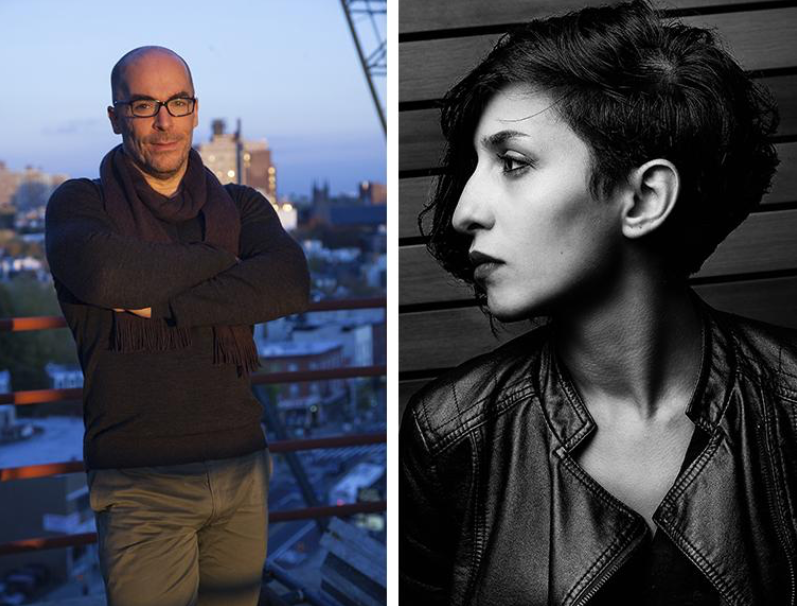
The University of Nebraska–Lincoln’s School of Art, Art History & Design is hosting the 2018 Mid-America College Art Association Conference Oct. 4-5.
The conference theme is “Techne Expanding: Tensions, Terrains and Tools,” and will explore wide-ranging interpretations of technology and its use and impact on the teaching, making and performing of art, as well as the broader human experience.
Two cutting-edge artists are keynote speakers for the event: Behnaz Farahi and Andy Cavatorta. Each of their keynote lectures are also part of the Hixson-Lied Visiting Artist Lecture Series. Farahi will present her lecture on Thursday, Oct. 4 at 5:30 p.m.; Cavatorta will present his lecture on Friday, Oct. 5 at 5:30 p.m. Both lectures will take place at the Embassy Suites Hotel at 1040 P St. in Lincoln. The lectures are free and open to the public.
Farahi's lecture is titled "Emotive Matter from Fashion to Architecture." How can material in the environment foster new empathetic interactions with users? What if matter could detect people's physical movement and emotional states, and respond accordingly? Illustrated with a series of experiments, prototypes and interventions inspired by natural systems, this presentation will address emotive material interfaces that respond to the behavior of the human body and its emotions through the implementation of emerging technologies.
Farahi is a designer and creative technologist based in Los Angeles and working at the intersection of fashion, architecture and interaction design. Trained as an architect and specializing in 3D printing and physical computing, her ultimate goal is to enhance the relationship between human beings and their environment by following morphological and behavioral principles inspired by natural systems.
Farahi is a recipient of a number of prestigious awards, including the 2016 World Technology Design Award and the 2016 Innovation By Design Fast Company Design Award. Her work has been featured on various television channels, including the BBC and CNN, and in leading journals and newspapers, such as Wired and The Guardian. She is currently an Annenberg Fellow and is completing her Ph.D. in Interdisciplinary Media Arts and Practice at the USC School of Cinematic Arts.
Farahi is on the advisory council for the Johnny Carson Center for Emerging Media Arts.
To see more of her work, visit her website at http://behnazfarahi.com/.
Cavatorta is an artist and researcher working with physical sound and robotics. His work explores technologically mediated emotions, opportunities to express the previously inexpressible, and how we make meaning with sound. This work is entirely new, but also part of a centuries-long tradition of exploring the artistic possibilities opened by every new technological or scientific development.
His talk is about the surprising history of music and technology, his own work, the pleasures and perils of working in unexplored spaces, and the importance of fake rules.
Cavatorta is a graduate of the MIT Media Lab. He is the recipient of the Lincoln Prize. His recent collaborations include Björk and Matthew Herbert. His recent exhibits include MoMA (Museum of Modern Art), TED, The Royal Opera House and short documentaries by National Geographic, Vice and Stella Artois.
For more on his work, visit his website at http://andycavatorta.com/.
Since the 1930s, the Mid-America College Art Association has provided a forum for the artists/teachers of America to discuss and debate the issues of our profession, and to share ideas and information of mutual benefit.
For more information about the conference, including registration information, visit http://www.macaart.org/.